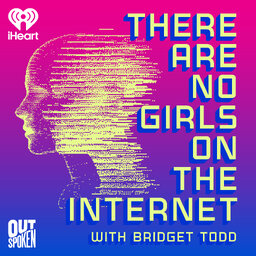Texas’ abortion law is just another disinfo fueled attack on democracy
Texas just passed the most extreme anti-abortion law in the country. But it’s yet another plank of a coordinated disinformation fueled attack on democracy.
Donate to local abortion funds in TX: Tangoti.com/donate
The Anti-Abortion Movement Was Always Built on Lies: https://www.gq.com/story/jane-roe-anti-abortion-lies
Learn more about your ad-choices at https://www.iheartpodcastnetwork.com
In 1 playlist(s)
There Are No Girls on the Internet
Marginalized voices have always been at the forefront of the internet, yet our stories often go over…Social links
Follow podcast
Recent clips

Amazon Ring Super Bowl Ad BACKFIRES; YouTubers Exploit Women's Arrest Videos; Salesforce CEO ICE "Joke" – NEWS ROUNDUP!
1:10:54

University of Oklahoma Trans Instructor's Attorney Still in the Fight After Appeal Denied
47:18

Should You Trust Andrew Huberman? What CBS's Epstein Disaster Reveals About Wellness Gurus
1:32:51
 There Are No Girls on the Internet
There Are No Girls on the Internet